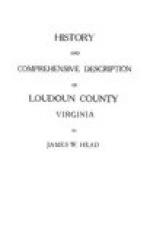Land was almost worthless, many of the owners having no capital, farm animals, or implements. Labor was disorganized, and its scant product often stolen by roving negroes and other marauders. The planters often found themselves amid a wilderness of land without laborers.
From this general gloom and despair the young people soon partially recovered, and among them there was much social gayety of a quiet sort. For four years the young men and young women had seen little of each other, and there had been comparatively few marriages. Now that they were together again, these nuptials soon became more common than conditions seem to have warranted.
This revival of spirits did not extend to the older people, who were long recovering from the shock of grief, and strain of war, much that had made life worth living being lost to them forever.
Conduct of the Freedmen.
Nearly every slaveholder, returning home after the fall of the Confederacy, assembled his remaining negroes and formally notified them of their freedom, and talked with them concerning its entailed privileges, responsibilities, and limitations. The news had, of course, reached them through other channels, but they had loyally awaited the home-coming of their masters, to whom they looked for a confirmation of the reports. Steady employment at a fixed wage was offered most of them, and, except in the vicinity of the towns and army posts, where they were exposed to alien influences, the negroes usually chose to remain at their work.
Many were satisfied with the old slavery quarters while others, for the taste of freedom that was afforded, established homes of their own at near-by points. There were two things which the negroes of the South felt must be done before they could be entirely free: They must discard their masters’ names and leave the old plantations if only for a few days or weeks.
Among the most contented and industrious there was much restlessness and neglect of work. Hunting and fishing and frolics were the order of the day. Nearly every man acquired, in some way, a dog and gun as badges of freedom. It was quite natural that the negroes should want a prolonged holiday for the enjoyment of their new-found freedom; and it is really strange that any of them worked, for there obtained an almost universal impression—the result of the teachings of the negro soldiers and Freedmen’s Bureau officials—that the Government would support them in idleness. But in the remote districts this impression was vague. The advice of the old plantation preachers held many to their work, and these did not suffer as did their brothers who flocked to the towns.
Neither master nor freedman knew exactly how to begin anew and it was some time before affairs emerged from the chaotic state into which the war had plunged them. The average planter had little or no faith in free negro labor, yet all who were now able were willing to give it a trial. The more optimistic land-owners believed that the free negro could in time be made an efficient laborer, in which case they were willing to admit that the change might prove beneficial to both races. At first, however, no one knew just how to work the free negro; innumerable plans were devised, many tried, and few adopted.




